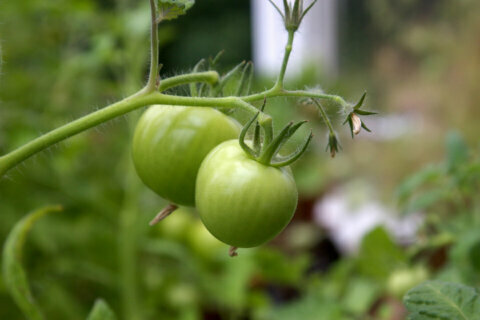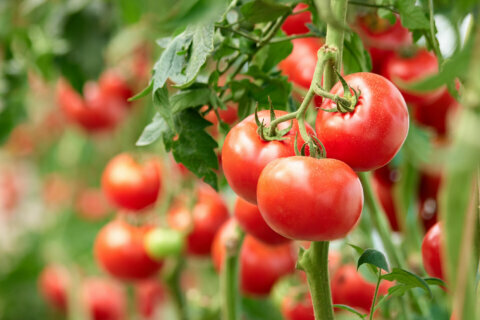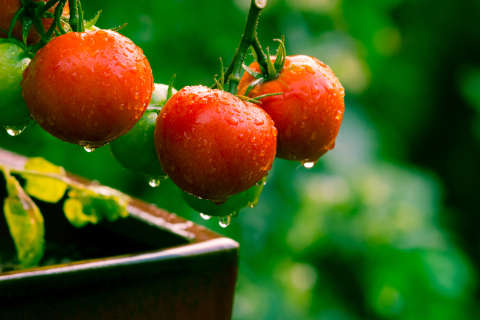How to buy the perfect Christmas tree
Bringing home a cut tree this weekend? Make sure the needles and branches are
nice and supple. Even the rigid branches and sharp needles of a blue spruce
should bend easily. Reject trees that feel the least bit brittle. And if the
branch you test snaps off, threaten to call the fire marshal.
Be sure to make use of the tree shaker machine to get rid of old needles, fall
leaves and other debris if the nursery has one. If no machine is available,
make sure the tree is vigorously shaken before it goes inside your home. Even
a fresh cut tree will have old dead needles lurking in its branches. (Do not
bang the tree on its stump to do this; get some help and shake it vigorously
while holding it sideways. Whack it gently with your car’s snow brush, if
that’s your idea of a good time.)
Variety choice?
The sharp needles of a blue spruce can be a real pain on the hands, but the
strong branches make it the best tree for heavy ornaments, and the color is
unparalleled. (Just wear gloves when handling it.)
Firs, the classic indoor Christmas trees, are much softer to the touch and
often hold their needles longer. But the branches bend easily, so keep the
ornaments light. Consider displaying any big clunky ones (like my Darth Vader
swinging a festive light saber) on the lower branches, or closer to the trunk.
And if you haven’t already, make the switch from hot, energy-sucking
incandescent bulbs to LED lights. They cost almost nothing to run, their total
lack of heat helps keep the tree from drying out and blown-out bulbs will be a
thing of a past!
(Oh—be sure to read the pre-watering tips from last week’s Garden Plot before you set your tree in its stand.
You’ll find a list of local ‘choose and cut’ tree farms there as well.)
That ‘Norfolk pine’ is from Australia, mate! (And it’s not a pine)
All holiday plants are not alike. And many of them are wildly inappropriate
for holiday weather, such as the so-called ‘Norfolk pine’ and the Christmas
poinsettia.
The Norfolk pine is not any kind of a pine — it’s an ancient and totally
unrelated species of conifer from Norfolk Island in the South Pacific (not
Norfolk, Virginia). And poinsettias are from Mexico.
So bring these plants home promptly — don’t let them sit in a cold car — and
get them safely inside right away. Keep them away from both cold windowsills
and hot air sources, and avoid over-watering them.
The ‘pine’ is pretty much a pure houseplant that should stay inside all year.
But the poinsettia can, and should, enjoy summer outdoors, then come back
inside to color up your holidays again year after year.
Amaryllis and paperwhites
Big bold amaryllis bulbs and pretty little paperwhites make great gifts to
give or receive for the holidays. Although both are tropical bulbs, only one
will reliably re-bloom, and that’s the dramatic amaryllis.
Just place the potted bulbs in a cool, bright spot, water lightly and enjoy
the big blooms. When the flowers fade, clip off the seedheads at the top of
the stalk and give the plant’s green leaves as much light as possible. I’ll
tell you how to recharge the bulbs for virtually guaranteed re-bloom after the
holidays.
Stinky paperwhites, however, are one-time wonders that are almost impossible
to perennialize, even for experts. So enjoy the show and then toss the spent
bulbs without guilt.
Guano and other great gifts for gardeners
Hoe, hoe, hoe! Time to suggest some holiday gifts for gardeners!
- If deer, geese, groundhogs, dogs, cats or people are their biggest
garden problem(s), get them a motion activated sprinkler such as The Scarecrow that
throws a blast of cold water at unwanted intruders. Find a better price on Amazon. - If mosquitoes are their summertime plague, give your gardener a big shaker
jug of BTI
granules and tell them to add the granules to small containers of water
outdoors. Female mosquitoes will lay their eggs in the water and the all-
natural larvacide (completely non-toxic and organically approved) will stop
new skeeters from hatching. No hatch, no bite! - If they spray chemical herbicides all around, get them one of the new
iron-based herbicides, such as Iron-X, for nontoxic control of broadleaf
weeds. (Here’s the product at Gardens Alive,
with a $25-off coupon. Ho, ho, ho!) - And don’t forget organic fertilizer! What gardener wouldn’t love to see a
nice package of worm castings or bat guano under the tree? (Okay, well, I
would!)
The weeder’s digest & the greatest flower show on earth
Looking for a very special gift for a gardener? How about a gift subscription
to Greenprints, “the Weeder’s
Digest,” a quarterly about the joys and pitfalls of gardening that’s
celebrating its 25th anniversary and 100th issue this month, and to which I’ve
been contributing a story per issue since 1998. (Other people write about the
joys; I cover the pitfall part.)
A gift membership in the Pennsylvania Horticultural
Society includes free tickets to the famed Philadelphia Flower Show in March and
all kinds of special treatment and extras while you’re there. Oh, and a four-
person membership ($105 for four adults, $70 for two adults and two kids)
costs less than the price of four tickets alone ($27 each in advance, $32 at
the door). I’d call that a real deal!
Follow @WTOPLiving and @WTOP on Twitter.







